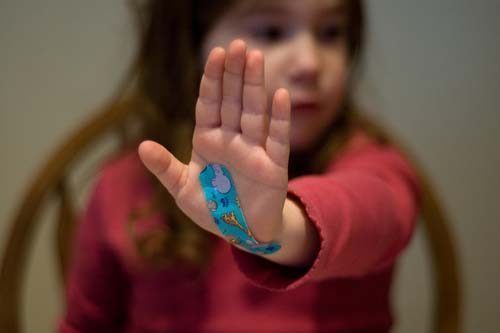
Only 120 cases of child abuse (out of some 1,349 domestic violence incidents) were reported to Hamad Medical Corp. last year, but health officials have said the actual number of injured children are likely much higher.
Bureaucratic hurdles, insufficiently trained healthcare providers and a reluctance to break cultural taboos all contribute to the problem, Pediatric Emergency Center (PEC) Department director Dr. Khalid Al Ansari said.
Speaking to reporters at the 3rd Annual Child Abuse and Neglect Symposium this weekend, he added, as reported by Gulf Times:
The long process involved in obtaining information about a case of abuse, especially if the perpetrator was one of the parents, was an impediment. Access to forensic medicine may also be prolonged unnecessarily due to bureaucratic bottlenecks.
“Once we report to the Ministry of Interior, before we can proceed with the forensic and clinical examination of the abused child, we’ll have to go through the long process of obtaining a letter from the HMC’s top officials, which could take between two to five days. I think a much quicker means is needed.”
All 120 cases seen by HMC last year were referred to the hospital by the Qatar Foundation for Child and Women Protection (QFCWP), which said it received more than 2,500 cases of abuse of children aged one and a half months to 12 years old between 2004 and 2012.
Cases double
Also speaking at the symposium, QFCWP research expert Salah al Mannai said the foundation received some 1,329 abuse complaints regarding 714 children and 635 women last year, more than double the 779 cases it received in 2011, Qatar Tribune reports. That in part has to do with the burgeoning population and a growing awareness of the issue, he said.
About a fifth of cases in 2012 involved Qatari families, and 78 percent of incidents involved expats. The vast majority of the cases were reported by mothers (72 percent), followed by nurseries (14 percent), both parents (12 percent) and fathers (4 percent).
Officials are now working to cut some of the red tape around reporting child abuse cases in Qatar. They are also training hospital staff to recognize the signs of abuse – both physical and psychological. Such indications could include sudden changes in behavior, unexplained injuries, a fear of going home, and others.
“Some cases can be minor and that is why they are ignored. Psychological abuse is also neglected. Only sexual and physical abuse is normally reported,” Dr. Khalid Alsaadi Alyafe, a consultant at HMC’s Pediatric Emergency, said, as reported by the Peninsula.
“Depriving children from vaccination, preventing them from going to school and other form of negligence are also considered abuse,” he added.
Anyone who suspects abuse should contact the QFCWP hotline at 919.
Thoughts?
Credit: Photo for illustrative purposes only by Adam Sherer







